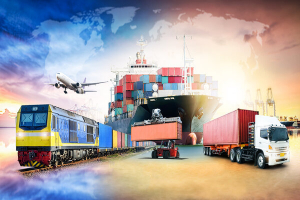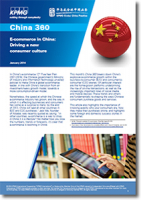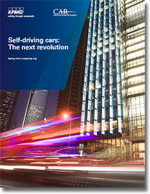KPMG Transport Tracker - Sixth Edition
This sixth edition of the KPMG Transport Tracker has a special focus on the rising M&A activities and investments in transport startups, analyzing the impact of falling fuel prices on airline operating models and discussing the challenges ahead for logistics companies amidst growing competition from tech giants and startups.
2015 was far from a strong year on the demand side for most transport and logistics companies.
World trade growth averaged barely 3 percent year-on-year in 2015 (2.6 percent until November 2016) according to CPB statistics –and the OECD notes that there had been just five years in the past 50 in which global trade had grown by 2 percent or less (a).
The Purchasing Manager Indices (PMI) in the major economies further support this negative view, as both the Chinese and the US PMI ended the year below the 50 percent growth mark, while the global PMI only just reached expansionary figures.
The IMF is now projecting global output growth at 3.4 percent in 2016 and 3.6 percent in 2017, both of which are slightly lower than forecasts issued in October 2015.
On the bright side, European growth is expected to be 1.7 percent in 2016, an upwards revision of 0.1 percentage points. Emerging markets growth is expected to increase from 4 percent in 2015 - the lowest rate since the financial crisis - to 4.3 and 4.7 percent in 2016 and 2017, respectively.
While downside pressures such as a slowdown in emerging market economies, China’s shift from an export-driven to a consumption-led economy and a geopolitical crisis, were the main reasons for the sluggish growth, the new consensus can also be explained as a plateau effect of globalization: Where trade growth has traditionally outpaced GDP rates by a factor of 2 –3, the ratio has now converged to 1.5x and is expected to remain stagnant in coming years.
It now seems that globalization has reached a stage in which supply chains can hardly fragmentise any further as the advantages of offshore production and the subsequent shipping of products to consumers, become smaller amid rising salary and transportation costs.
A few insights include:
- In Shipping, we expect to see larger mergers and restructuring efforts across the globe in 2016, as a recovery is nowhere in sight.
- In Aviation, the impact of declining fuel prices on individual airlines has not been universally positive, depending on the airlines’ hedging strategies. KPMG’s analysis of a sample of full service and low cost airlines reveals that the oil price reduction has improved the price competiveness of the legacy carriers. What opportunities do low cost airlines have to respond?
- In Logistics, the major competitive advantages of tech giants and startups over traditional logistics companies are both their technological ability and innovative agility – characteristics that a number of logistics companies are currently lacking.
- And as startups continue enter the market, transportation and logistics companies are at risk of losing their most important asset: the customer interface.
- M&A activity in the sector reached a record level in 2015 and will remain high in 2016. Acquisitions made are increasingly serving the transformation of existing business models and are intended to compensate for the slower market dynamics through inorganic growth.
What’s Related



Favorites




